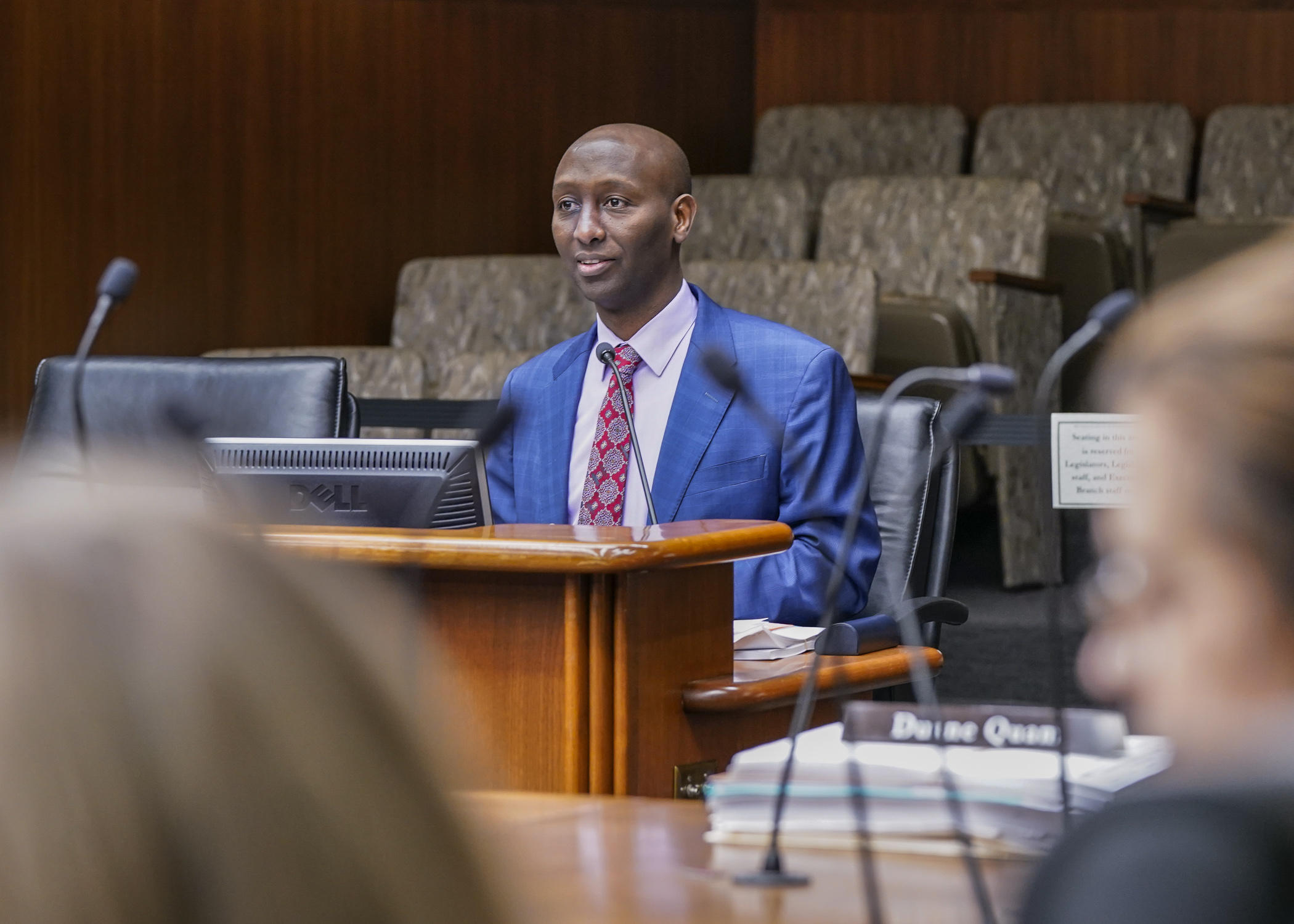Payment rate increases included in $1.2 billion omnibus human services bill

Throughout the session, the House Human Services Finance Committee has heard direct support staff and frontline employees who assist people with disabilities lack a livable wage.
Sponsored by Rep. Mohamud Noor (DFL-Mpls), the omnibus human services finance and policy bill would appropriate $1.31 billion in new spending, including a onetime $33.3 million appropriation for home and community-based workforce incentive fund grants.
“Long-term care facilities, including nursing homes, are going to receive historic investments. I am committed to ensuring Minnesotans working in the long-term care profession receive a significant wage increase because our state is facing a crisis when it comes to our long-term care workforce,” Noor said in a statement.
The omnibus bill, HF2847, was approved, with an amended delete-all amendment, by the committee Thursday via a 9-5 party-line vote. Its next stop is the House Ways and Means Committee.
Rep. Anne Neu Brindley (R-North Branch) cited plenty of positives, but voted against the bill mainly for what isn’t included to meet demand. “If we don’t have the resources right now to take care of our seniors we never will,” she said. Additionally, she expressed concern that the bill calls for $400 million in grants going out but no oversight.
[MORE: Bill in the omnibus bill; View the spreadsheet]
The bill contains numerous other proposals that would prohibit the subminimum wage for people with disabilities, add sober home regulations and consumer protections, establish the Department of Direct Care and Treatment, and allow personal care assistants to drive clients, as well as increase payment rates for community living assistance and family caregiver services.
Additional amendments
For a yet-to-be determined appropriation, the adopted amendment offered by Noor would establish a supporting new Americans in the long-term care workforce grant program to support immigrants, refugees and any other new Americans interested in entering the long-term care workforce.
For the safe recovery sites start-up and capacity-building grants, the amendment also specifies prioritizing grant applications committed to serving groups disproportionately impacted by the opioid epidemic, including Black and Indigenous communities.
Related Articles
Search Session Daily
Advanced Search OptionsPriority Dailies
Speaker Emerita Melissa Hortman, husband killed in attack
By HPIS Staff House Speaker Emerita Melissa Hortman (DFL-Brooklyn Park) and her husband, Mark, were fatally shot in their home early Saturday morning.
Gov. Tim Walz announced the news dur...
House Speaker Emerita Melissa Hortman (DFL-Brooklyn Park) and her husband, Mark, were fatally shot in their home early Saturday morning.
Gov. Tim Walz announced the news dur...
Lawmakers deliver budget bills to governor's desk in one-day special session
By Mike Cook About that talk of needing all 21 hours left in a legislative day to complete a special session?
House members were more than up to the challenge Monday. Beginning at 10 a.m...
About that talk of needing all 21 hours left in a legislative day to complete a special session?
House members were more than up to the challenge Monday. Beginning at 10 a.m...